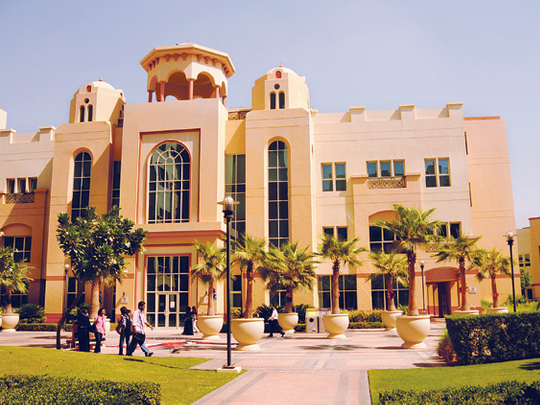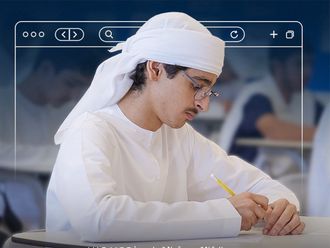
Dubai often hits the headlines for having the tallest, the biggest, the most of some world record-breaking phenomenon. It also holds one ‘world record' that is worth looking at more closely to see how it is building a higher education landscape to reflect the rich mix of people who live here.
For Dubai has more international university branch campuses than anywhere else in the world.
First we need to look at Dubai's short history of higher education. Only 20-odd years ago, a school pupil would have had almost no choice other than travelling abroad for his degree. Until 1976, the UAE had no university at all. Today the higher education opportunities in Dubai tell a very different story.
There are now 51 higher education providers in Dubai alone, and 28 of those are branch campuses of international universities from 11 different countries. Many are household names, such as London Business School, Manipal University, Middlesex University, Rochester Institute of Technology, and so on.
Better choice
There are approximately 38,000 students of more than 60 nationalities studying in Dubai at present, and roughly half are in branch campuses. So how has this blossoming of educational choices occurred in such a short time? Perhaps this can best be summed up by the old proverb: Necessity is the mother of invention.
Dubai's Strategic Plan 2015 has education as one of its cornerstones. The growth of any young nation needs educated people to carry its plans forward. However, Dubai is also a diverse and transient place, with a wealth of young families who send their children back to their home country for further education.
A matter of trust
This is both a practical and a philosophical decision; it gives the child a proper taste of his/her home country, but it also represents a more comfortable decision for the parents, who are most familiar with what is on offer ‘back home' and know the institutions they can trust.
Dubai's challenge was to attract some of these established and trusted institutions to Dubai. So in 2003 the Knowledge Village free zone was founded. There are now five free zones in Dubai that house educational institutions, adding to the mix of federal, Dubai government-funded and private higher education institutions.
Between the branch campuses and four other institutions in the free zones (32 in total) they currently have 16,500 students — of whom, 2,200 are Emiratis (as of October 2009, according to the Knowledge and Human Development Authority, Dubai, (KHDA)). There are also a number of online or distance education programmes on offer, but these are not included in the statistics used here.
Developing skills
Dr Warren Fox, the Executive Director of Higher Education at KHDA, explains, "We want options for students to meet their needs, and to offer them the educational opportunities they deserve. We also want programmes that better prepare these students for jobs that will take Dubai towards fulfilling its Strategic Plan 2015.
"Bringing these branch campuses to Dubai means we bring international standards to our students' doorstep. Dubai is entrepreneurial, it's growing, and the sectors such as trade, tourism, and retail are growing. We want choices for a variety of students that reflect Dubai."
However, the world is going through difficult times with the fallout from the global economic crisis still being felt almost everywhere. So how is Dubai faring as far as higher education is concerned?
Dr Fox says, "The free zones are attractive to foreign universities. This is still a hub, students are still here, and on the whole enrolment numbers are steady. We want to be an international hub; we want Indian, Iranian, Jordanian, a broad mix of students to come and study.
"We would like some to go home, and spread the word about the quality of education in Dubai, and we'd like some to stay, especially in the growing areas of the strategic plan; tourism, trade, logistics, engineering, education.
"We also want to meet the needs of the Emiratis and non-Emiratis who live here, and the higher education landscape needs to fit the purpose, it needs to match Dubai's needs."
What about the future, say the next 20 years? What sort of choices will a child born this year have on offer when he/she reaches the age to go to university?
More programmes
Dr Fox says, "If you look at the landscape, there has been enormous growth. We will continue to grow, but I think we will be levelling off; instead of lots of new institutions, we need to expand the number of programmes in institutions that are already here [currently there are 409 programmes in Dubai]. We want to broaden the programmes available over the next five years; this will make the campuses more sustainable. We are now working with our campuses on this.
"We will also see more postgraduate and doctoral programmes, too. In 20 years, the landscape will probably look a little different; our campuses will be here, and we expect that they will have expanded."
— Sue Brattle is Senior English Writer at the KHDA












